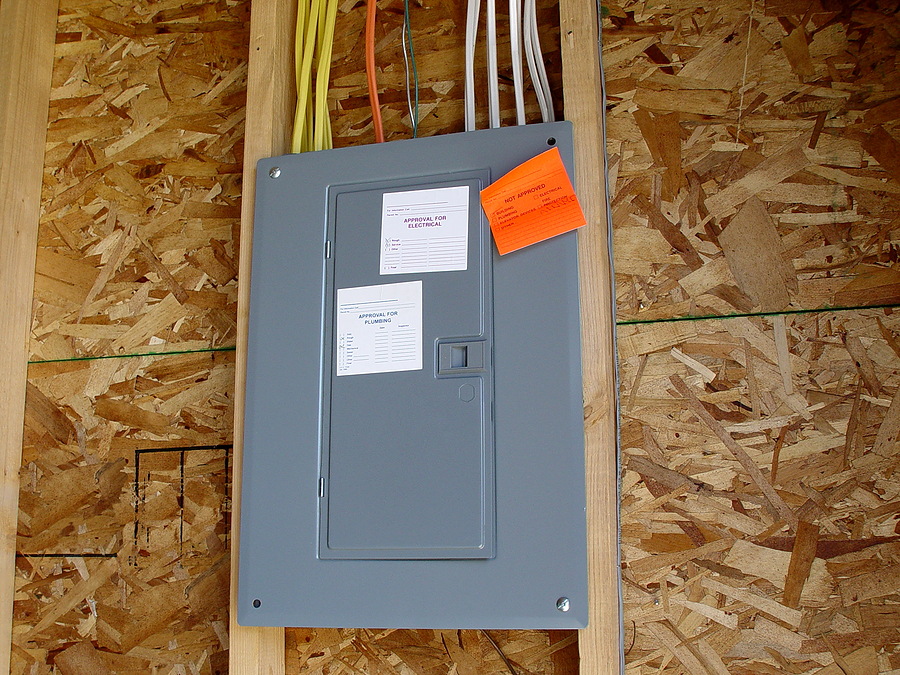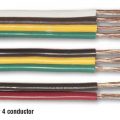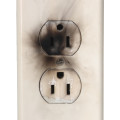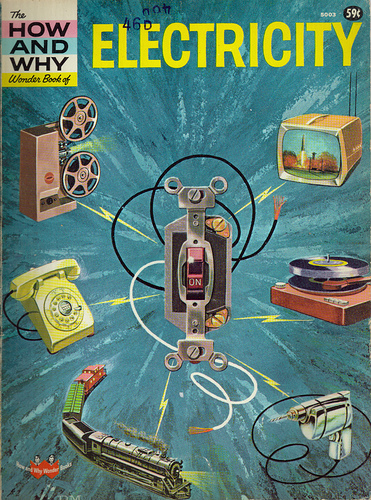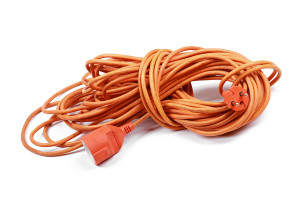 There are huge differences between indoor electrical wires and an outdoor ones. While you might use an outdoor extension indoors, you should never use indoor extension wires for outdoor use.
There are huge differences between indoor electrical wires and an outdoor ones. While you might use an outdoor extension indoors, you should never use indoor extension wires for outdoor use.
The more you know about of these two types of wires, the more you eliminate hazards.
1. Insulation
One of the main differences between these two types of wires is the type of insulation that is used to construct them. There is a big difference between the type of materials used as protective insulation that surrounds both types of wires.
Because outdoor electrical wires are always exposed to the fluctuations of temperature and moisture, they are made with more durable insulation. If an indoor electrical wire is used outdoors, it is possible for sunlight to break down the protective layers.
However, outdoor electrical wires are made with materials that prevent sunlight damaging the insulation. Also, outdoor electrical wires are made to help prevent chemical damage, like oil, but indoor electrical wires are not.
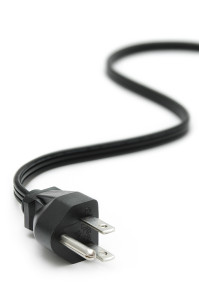 2. Plug Type
2. Plug Type
On the basis of plug type, you will realize that majority of outdoor wires tend to have 3-pronged plugs while indoor wires have 2-pronged plugs.
The reason for the third plug on the outdoor wire is to reduce hazards of fires or electrical shocks. Generally, the 2-prong plug wire is used on small appliances and lamps that we use inside the home.
3. Amperage
All those household appliances that you see at home require different amperage in order to operate.
Outdoor electrical wires have more amperage compared to the indoor wires, and this is because outdoor appliances tend to utilize more amperes as compared to indoor ones.
According to Home Depot, a lamp will utilize roughly 0.5A while an outdoor appliance, for instance a leaf blower, may require an electrical wire cable that allows up to 12A.
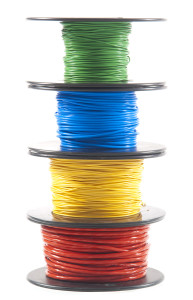 4. Gauge
4. Gauge
A wire’s gauge refers to the diameter or size of the wires that are found inside the cord. There is a noticeable difference in the gauge that is found in indoor wires and that found in outdoor electrical wires.
The main reason for this is that indoor electrical wires will seldom be longer than 25 feet, whereas outdoor wires can be as long as 150 feet or even more. At such a great length, more current is required to flow through electrical wire.
Therefore, since outdoor electrical wires tend to be much longer, they are often of larger gauge.
As you can see, there is quite a large difference between indoor and outdoor electrical wires. While the electrical wire meant for outdoor use can be used indoors, it would be dangerous to use indoor wires outside.
Indoor wire is designed for use within the house and is not prepared to handle the external factors found outdoor such as temperature, moisture and even chemicals in some cases. Be safe and use electrical wires in the environments for which they were designed to prevent unwanted electrical hazards.
Call Conductive, the most trusted electrical contracting company in Delaware.
Areas Served: Wilmington, Newark, Greenville, Smyrna, Hockessin, Pike Creek, Dover and more.
Services Offered: Residential & Commercial Electrical Services, Service Panel Repairs & Upgrades, Swimming Pool Wiring, All Types of Electrical Repairs
Call Conductive Electrical Contracting today at 302-319-4061.
